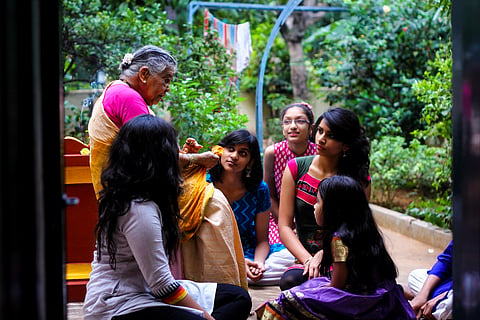
- Mental health mattersMental health matters
- Mental IllnessMental Illness
- Life stagesLife stages
- Caregiving
- Workplace Mental Health
- Legal Matters
- Subscribe

Do you have many hobbies and interests, or only a few? Do you enjoy visiting new places or prefer familiar routines? Such questions center on curiosity. For many decades, psychologists gave little attention to this personality trait because of their emphasis on abnormal or merely average functioning. However, curiosity is now gaining considerable attention today in positive psychology and its spinoffs--including business, education, entertainment, and science. As Dr.
Carolyn Greider of Johns Hopkins University--winner of the 2009 Nobel Prize in Physiology or Medicine—reported about her work on chromosomes, “New discoveries come from the most unlikely places. Curiosity-driven research provides unexpected discoveries that have implications for human health.”
Of course, many great inventors and scientists in modern times have extolled the importance of curiosity. These figures have included the French Nobel Prize winner Marie Curie and the celebrated American inventor-businessman Thomas Edison. More recently, the popular film-maker Stephen Spielberg advised an audience of graduating college students, “The greatest quality that we can possess is curiosity: a genuine interest in the world around us. The word used most by young children is `Why?’ From this simple question and such basic curiosity, great acts are born.”
Despite the adoration of curiosity by such creative luminaries, it has been only a few years that psychologists have explored it as a personality trait—perhaps because curiosity is difficult to measure. However, led by Dr. Todd Kashdan of George Mason University, the scientific study of curiosity is rapidly gaining adherents. After helping to develop the first scientific scale to measure curiosity, Kashdan applied it experimentally. With colleagues, he found that high scorers showed greater playfulness, wit, and ability to bond emotionally with a stranger of the opposite sex. Highly curious people also gave more attention to their assigned partners during their mutual conversation. Thus, curiosity seems to be a definite asset in the early stage of romance. This finding seems logical, for few people are attracted to those who are boring.
More recently, Kashdan’s research team also found that highly curious people were less likely to demean their romantic partner--presumably because they were less self-centered and defensive than un-curious people.
Curiosity also seems to bring intellectual benefits. In an influential study led by Dr. Mathias Gruber of the University of California at Davis, participants were asked to review more than 100 trivia questions like “What Beatles song lasted the longest on the popularity charts?” The participants rated each question as to how curious they were about the answer. Then, while researchers scanned their brain activity using an MRI machine, the participants revisited each question and waited briefly for the answer--while a photo of an unfamiliar face flashed before them. Afterward, the researchers tested to see how well participants immediately recalled and retained both the trivia answers and the faces they saw.
Gruber’s team found that greater interest in a question—that is, curiosity---not only predicted better memory for the answer, but also for the unrelated face that had preceded it. A day later, the results were still significant. Somehow, curiosity prepared the brain for learning and fortified long-term memory.
Some educators argue that this study has important implications for learning. That is, the more curious you can make yourself about a learning task, the greater your likely mastery. So, it’s up to you to shape your attitude in order to gain optimal success. Indeed, evolutionary scientists believe that curiosity has helped the human species to survive by inducing ancient peoples to explore new lands to take advantage of opportunities for communal well-being.
To strengthen your curiosity, select a country that you have never visited, but which you are curious about. During the next three weeks, learn about its history, cuisine, culture including music and arts, industries, politics, and natural environment. Use a notebook to jot down topics that you find interesting from your Internet explorations. When you feel ready, decide if you would like to plan a visit to this country--and what you would most like to see or do there. To enhance your curiosity, too, seek the company of people with many interests—and who find this world an extraordinary place.
Dr Edward Hoffman is an adjunct associate psychology professor at Yeshiva University in New York City. A licensed clinical psychologist in private practice, he is the author/editor of more than 25 books in psychology and related fields. Dr Hoffman is the recent co-author with Dr William Compton of Positive Psychology: The Science of Happiness and Flourishing, and serves on the editorial boards of the Indian Journal of Positive Psychology and the Journal of Humanistic Psychology. You can write to him at columns@whiteswanfoundation.org
We are a not-for-profit organization that relies on donations to deliver knowledge solutions in mental health. We urge you to donate to White Swan Foundation. Your donation, however small, will enable us to further enhance the richness of our portal and serve many more people. Please click here to support us.
